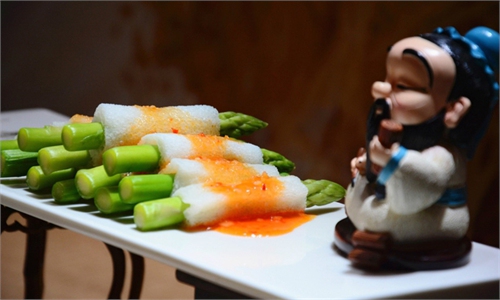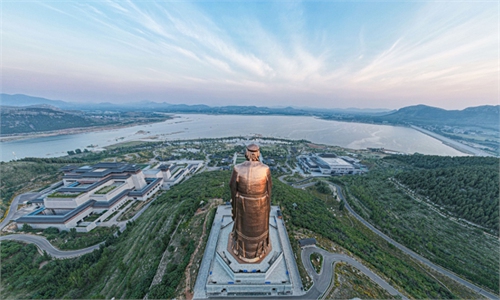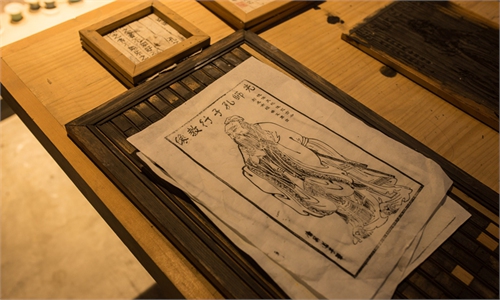IN-DEPTH / IN-DEPTH
Harmony is precious – Confucian social management still applied today in his birthplace Jining
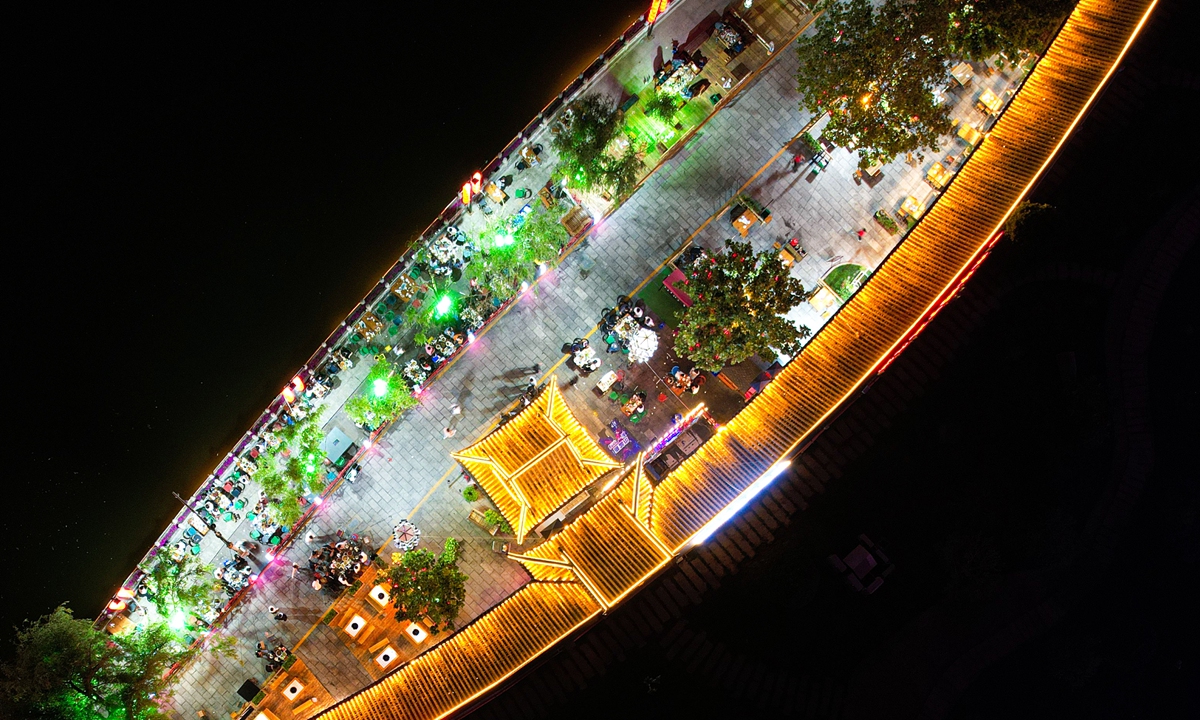
The night view of Jining Photo: Yang Ruoyu/GT
"In practicing the rules of propriety, it is harmony that is prized."
This is a quote from Xue Er, the first passage of The Analects by Confucius, China's greatest philosopher who lived 2,000 years ago. The doctrine is also considered as one of the essences of Confucianism and occupies a prominent position in traditional Chinese society and culture.
Over the past two millennia, people in China have pursued and applied the doctrine in their daily lives and the different dynasties of the country's ancient rulers relied on it as a policy to manage society as well as to deal with foreign nations.
Even today, the idea of "harmony is precious" is still a significant concept for the Chinese people and has many manifestations in human rights in today's China. They are reflected in the country's domestic governance, ethnic policies and diplomatic strategies.
Moreover, officials also adopt this concept on social management at the grass-root level, advocating that it is necessary to protect the rights of individuals while respecting the rights of others.
In Jining, a city in East China's Shandong Province and birthplace of the sage, people are implementing every day the concept of "harmony is precious", making it a mirror that reflects how Confucius' wisdom is still guiding and nurturing its offspring.
Understanding and respect
Hougang village, located 30 minutes from Jining's city center, has a long history of around 1,000 years and has a mixed community of Han and Hui ethnicities.
Walking into the village, it is easy to tell which residents are Hui, one of China's biggest ethnic groups whose ancestors moved from the Middle East and settled down across the country. Their houses differ from their Han neighbors' with Islamic scriptures carved in the walls above the gates.
In this village, harmony and unity are followed and treasured by everybody, making Hougang a model of rural revitalization and ethnic unity and progress.
For Zhang Mingwu, the Party secretary of Hougang village, the achievements that the community can realize today are the result of a difficult and long process.
Hougang village has 819 residents in 234 households, in which one third are Hui.
About 15 years ago, the village was known for being dirty, messy, underdeveloped, poor and chaotic.
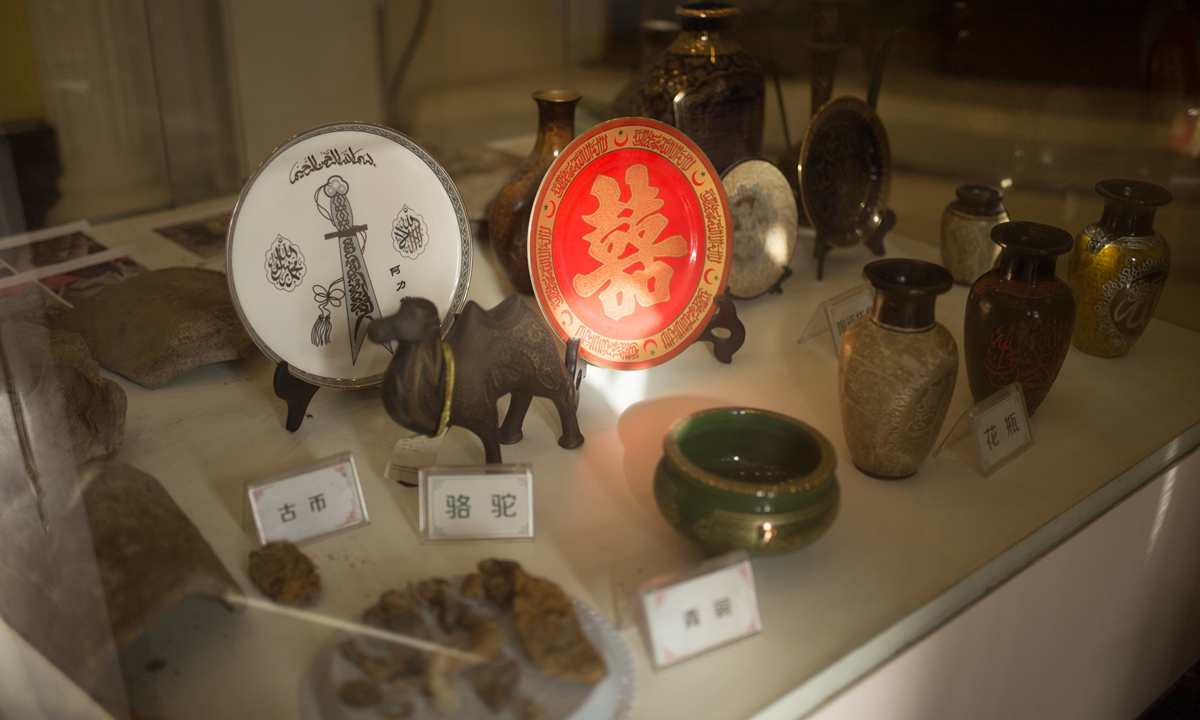
The museum about Hui history in Hougang village Photo: Shan Jie/GT
At the darkest moment, Zhang and several other residents were voted as the new leaders of Hougang village. Though with great pressure, Zhang and his team began to take over the work to run the village and changes appeared gradually.
The first thing they did was to learn about the needs of the villagers. They entered every house, talked to every resident and listened to their problems and difficulties. Afterward, they tried to solve the problems as much as they could.
The next important work was to change the living conditions and infrastructure in the villages. "Previously, Hougang village did not have a proper road. When it rained, it became muddy everywhere and the puddles with dirty water could last for more than a week," Zhang recalled.
The renovation work started in 2007. It was organized by the village committee and residents did not need to spend much money. Nowadays, families in Hougang have moved into neat and beautiful houses that are finally connected to tap water.
However, changing the appearance of the village is one thing and changing the spiritual attitude, another.
"The village was a mess. There were many conflicts, small and big, everywhere. Men drank and quarreled on the street every day," Zhang told the Global Times.
One of the main issues that needed to be resolved was the misunderstanding between Han and Hui people. Zhang, himself a Hui, took advantage of his identity and built up a small museum about the Hui culture. "Everybody in the village should come here to study the real history of the Hui, especially the Hui people who actually do not know much about their own history and are easy deceived by false information," Zhang said.
Hougang advocated understanding and respect. Nowadays, several Han-Hui couples have formed families, a great sign of ethnic unity. "An easy way to test their love is to see if they can respect each other's conventions," Zhang said with a laugh.
Hougang has gradually become a model village in Jining with these reflections of harmony.
Moreover, Hougang developed its own industrial park that promotes the in-depth integration of agriculture, tourism, culture, health care and manufactures. In 2020, net per capita income in Hougang reached 45,000 yuan ($7,000) and the collective income of the village reached more than 600,000 yuan ($94,000), which is a good start for its industrial revitalization.
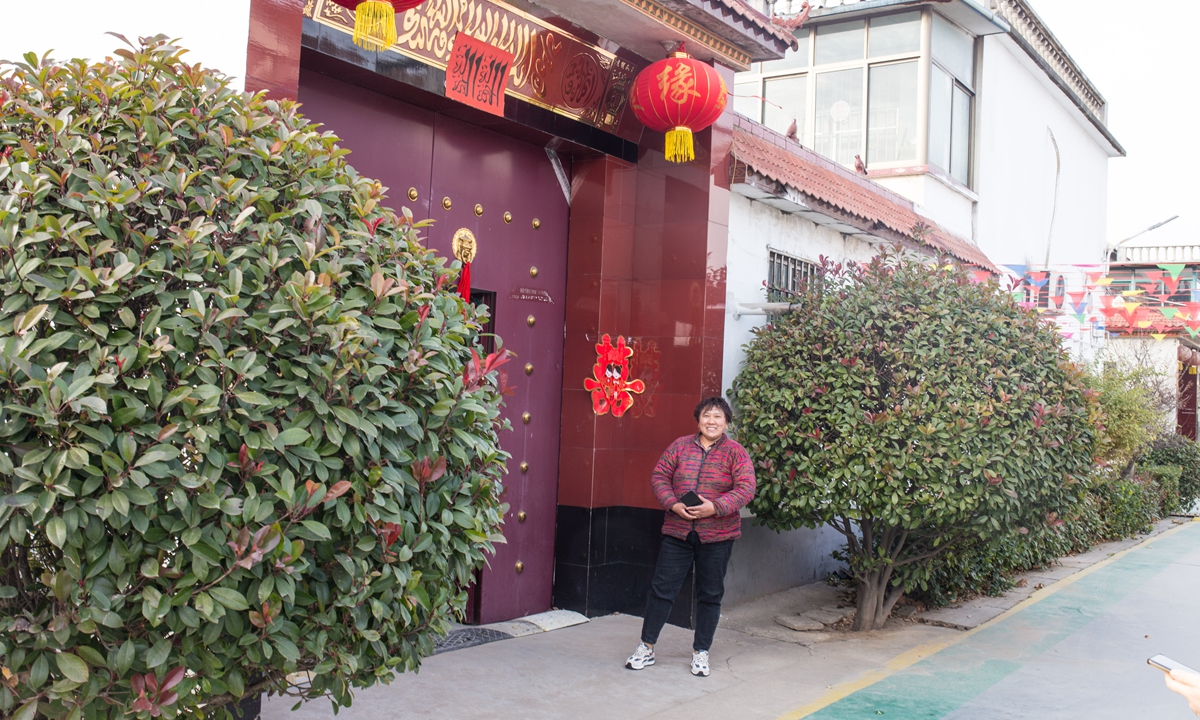
Hougang villager Jin Shiling stands outside her house. Photo: Shan Jie/GT
Jin Shiling, a 49-year-old housewife in a Hui family, told the Global Times that she has a deep feeling about the change in Hougang. "Many years ago, when I married and moved to Hougang, I was regretful after seeing the bad conditions here," Jin said. "But now, I am happy about my choice. My sisters all envy me for living in such a beautiful house and having a comfortable life," she said.
Zhang's efforts also won himself honor. In 2020, he was awarded as a national model of ethnic unity and progress and was invited to Beijing to be received by the top leaders of China.
Living a better life together
In Jining, Jinxiang county is a legend for being the "hometown of garlic plantation" and Cuikou village is noted for being the "center of garlic storage and trade."
Over the past 40 years of reform and opening-up the garlic industry has developed notably . In 2019, the total industrial output value of Cuikou village was 720 million yuan ($113 million), the collective income reached 5.6 million yuan ($879,000) and the per capita net income of farmers was 46,000 yuan ($7,220). Here, almost every family has their own company.
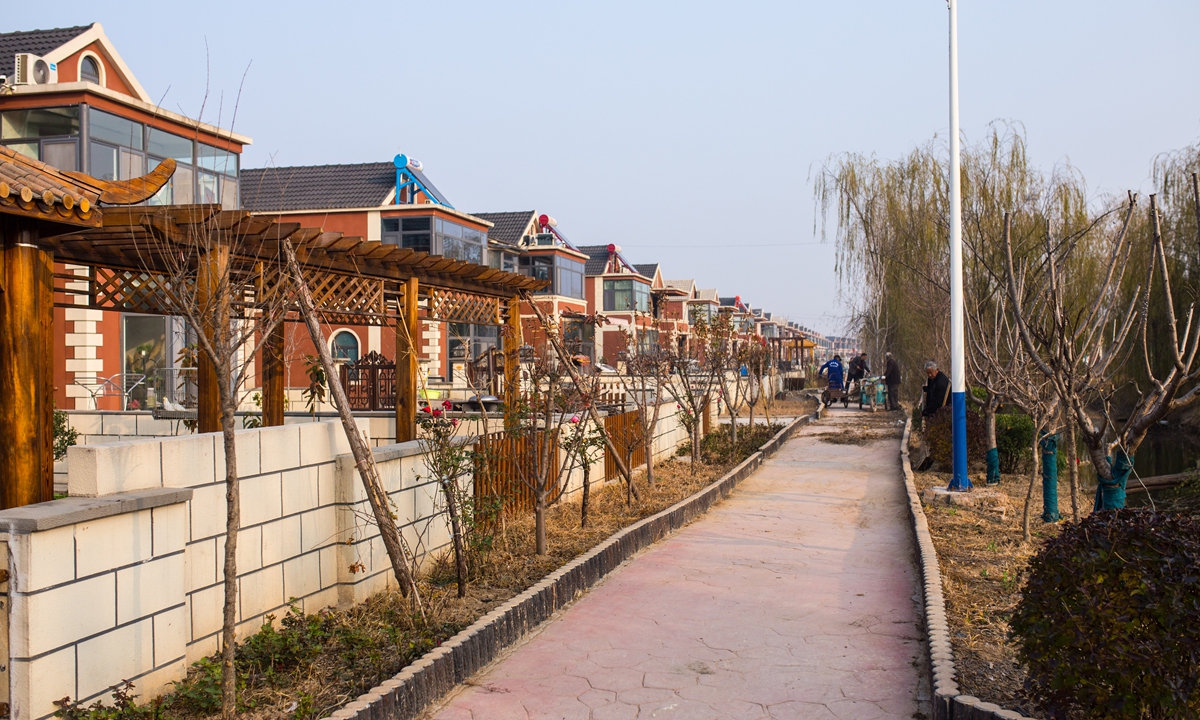
The Cuikou village is known as the "No.1 Garlic Village of China." Photo: Shan Jie/GT
Like Hougang, Cuikou also saw a great change in the past few decades. Before that, Cuikou used to be known as a poverty-stricken village full of problems and conflicts.
Along with the renovation work, Cuikou has developed its own management under the Confucian concept of "harmony is precious."
Zhang Aijuan, a local civil servant stationed in Cuikou village, has been working here since 2015 and is responsible for the mediation among villagers. According to her, disputes on land, finance, or daily life used to affect the production and operation of business in the village.
Zhang's co-worker Tian Shuguang told the Global Times that they would intervene to mediate as early as possible. "We would find the root of the conflict and try to solve it making the villagers understand each other," Tian said, adding that "most of the conflicts can be solved inside our village without relying in a petition or legal government departments," Tian said.
"However, our job is not to prevent villagers with requests and problems from petitioning, but to learn about their needs and help them truly solve them," Zhang Yali, Director of the Social Management and Service Center in Yushan community, which administrates Cuikou village, said. Zhang highlighted that the "people are satisfied with our work and service."
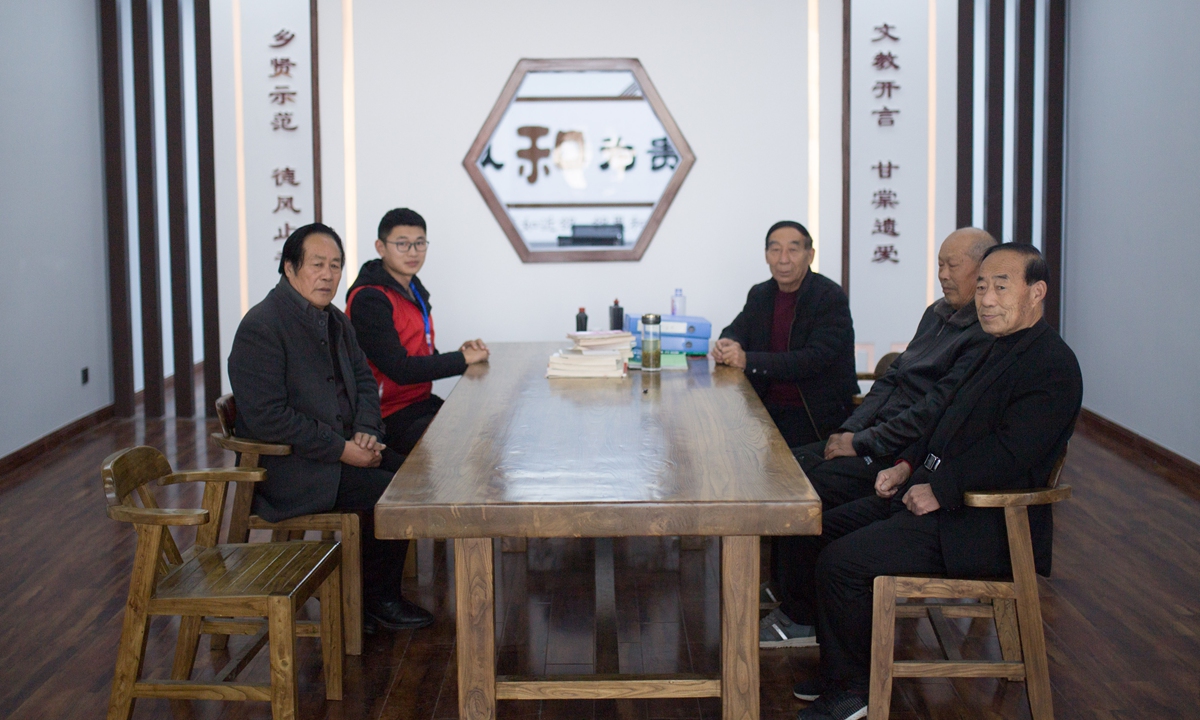
The "Senate" of Cuikou village Photo: Shan Jie/GT
In addition, the villagers also chose several prestigious senior citizens in the village to help administrate Cuikou, like in the Roman Senate. Seniors participate in making decisions as well as mediating.
Nowadays, "harmony is precious" is showed everywhere in Cuikou. Even the service center of the village is called this name. "Let's meet outside 'harmony is precious,'" villagers would say, and this is their way of expressing their approval to the way the administrators work.
Wisdom on social management in Confucianism
Jining implemented the "harmony is precious" concept in the most grass-rooted level administration and systematically combined the theories of Confucianism with modern social management. It used its advantage of being the hometown of Confucius and having a powerful talent pool of Confucianism studies.
The Jining Leadership Political and Moral Education Base in Qufu of Jining was founded in 2015 and has become China's major training base for cadres of the Communist Party of China, government officials and even government employees from other countries.
The base has held up to now 1,600 training sessions for ministries, companies and government of different levels, with 89,000 participants. The training combines the positive content of traditional Chinese culture with Confucianism and current affairs, aiming to improve the morality and quality of the officials.
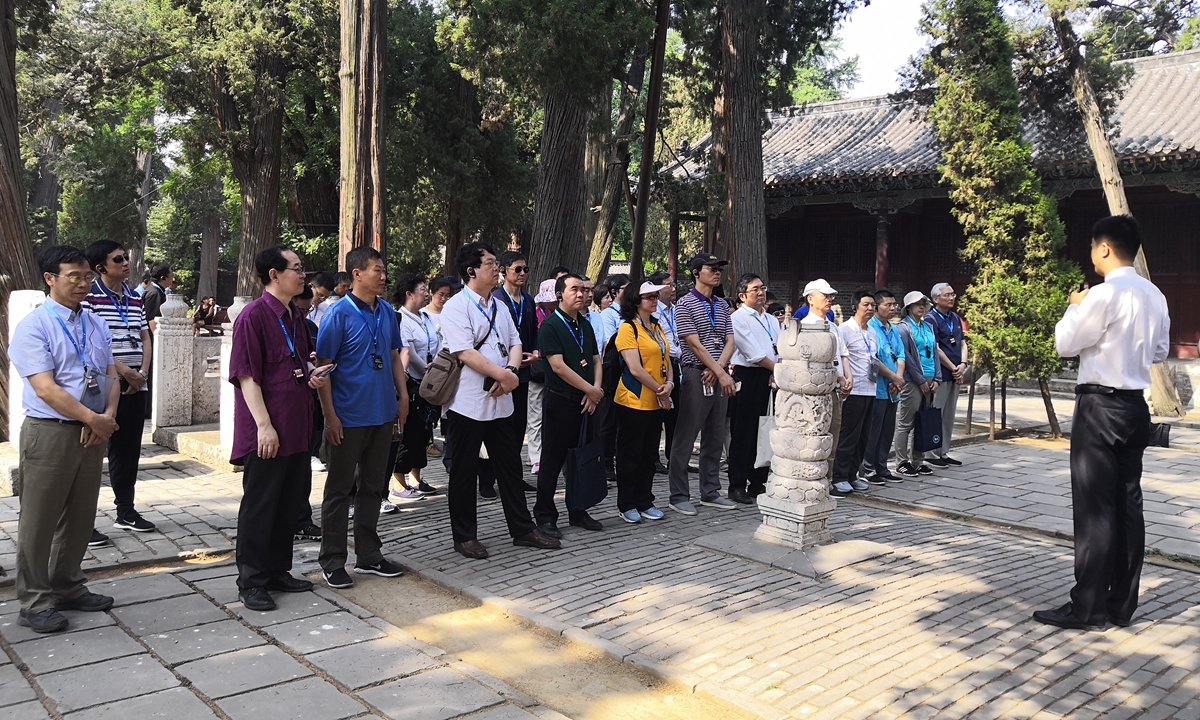
A training of the Jining Leadership Political and Moral Education Base Photo: Courtesy of the Jining Leadership Political and Moral Education Base
The training also tried to demonstrate international solutions for social management in other countries. More than 300 senior officials from 25 countries under Belt and Road Initiative, such as Fiji, Vietnam and Kyrgyzstan, have participated in the training program on social management theories.
"For instance, we learned that Fiji has different ethnic groups in conflict, so we shared the 'harmony' concept with their officials. They found it meaningful and serviceable," Kong Fanpeng, a lecturer at the Political and Moral Education Base, told the Global Times.
"For Chinese people, no matter how much they know about traditional culture, they have the consciousness to understand the importance of 'harmony,'" Qiu Yinjiang, member of the Party committee at the Political and Moral Education Base, told the Global Times.
"The concept could promote social management and enhance relations between the nation, society and the people. That is why we attach importance to Confucianism nowadays," Qiu said.
"After all, Confucianism is also reflected in the Chinese democracy that we have been talking about nowadays," Kong Hongen, a lecturer at the base said.
"Educating the people, enriching the people and supporting your people, these are some propositions of Confucianism," Kong said, noting that "this is also what China has been doing and getting achievements. In Confucianism it is called the society of 'the Great Harmony.'"

